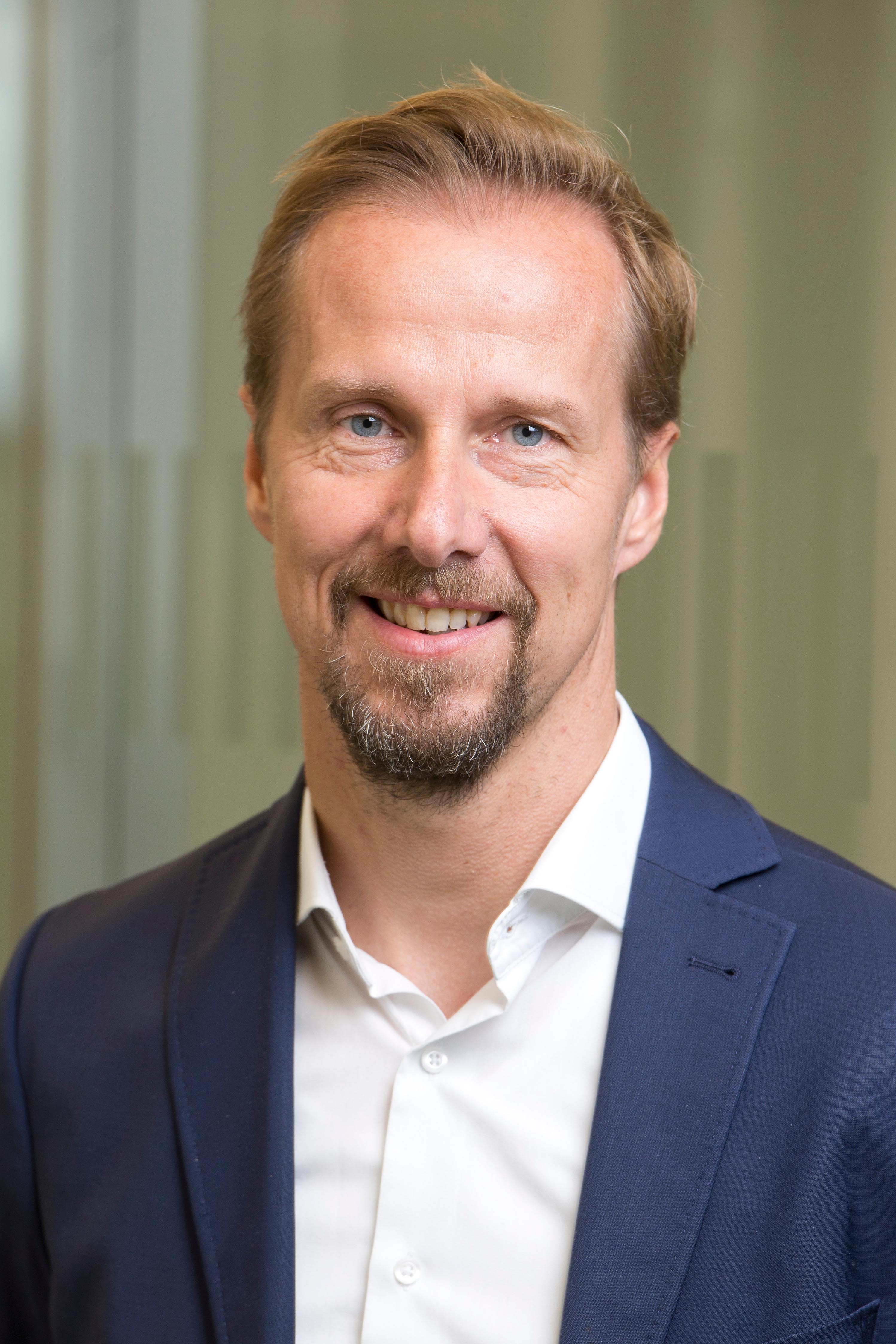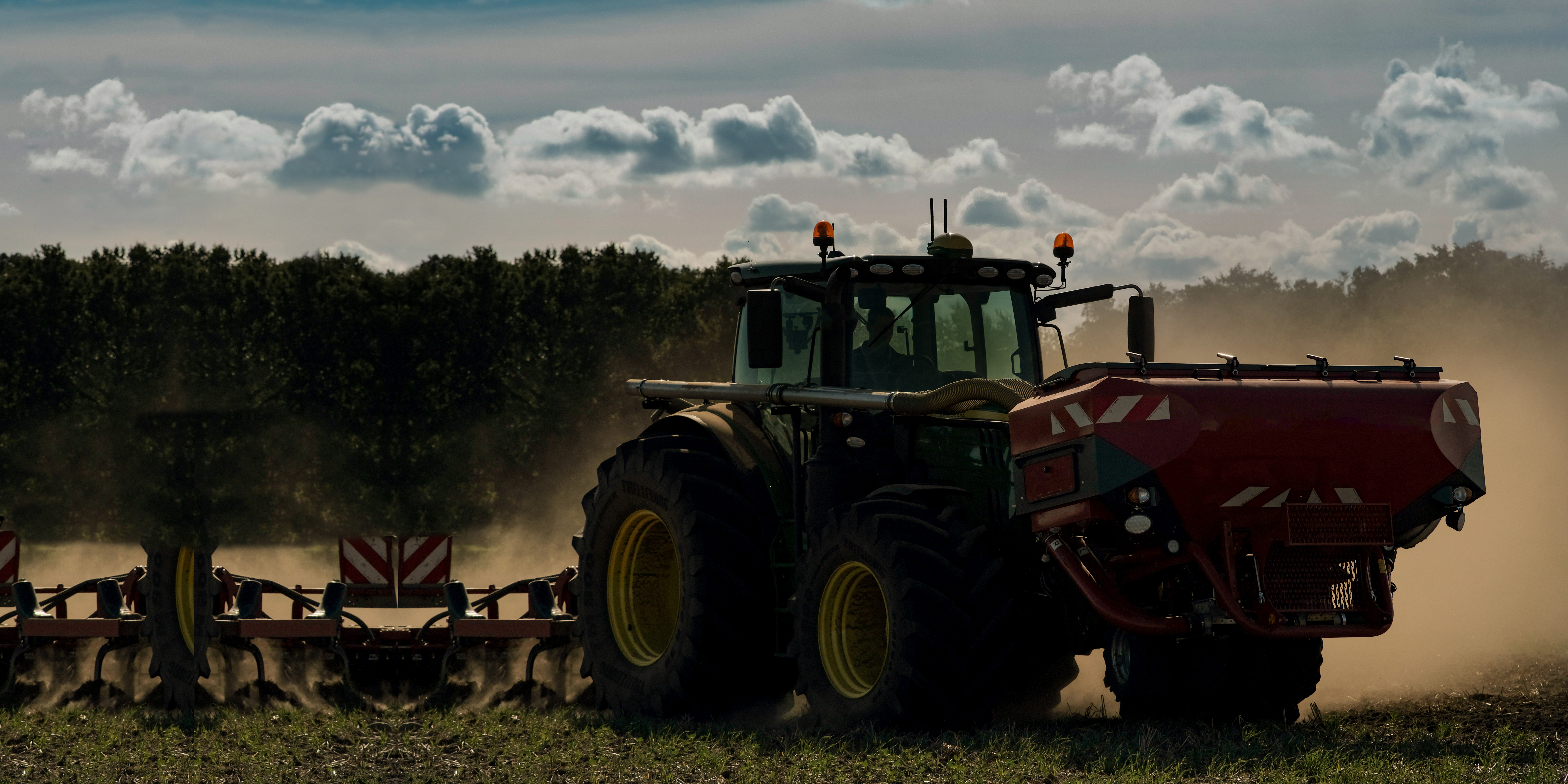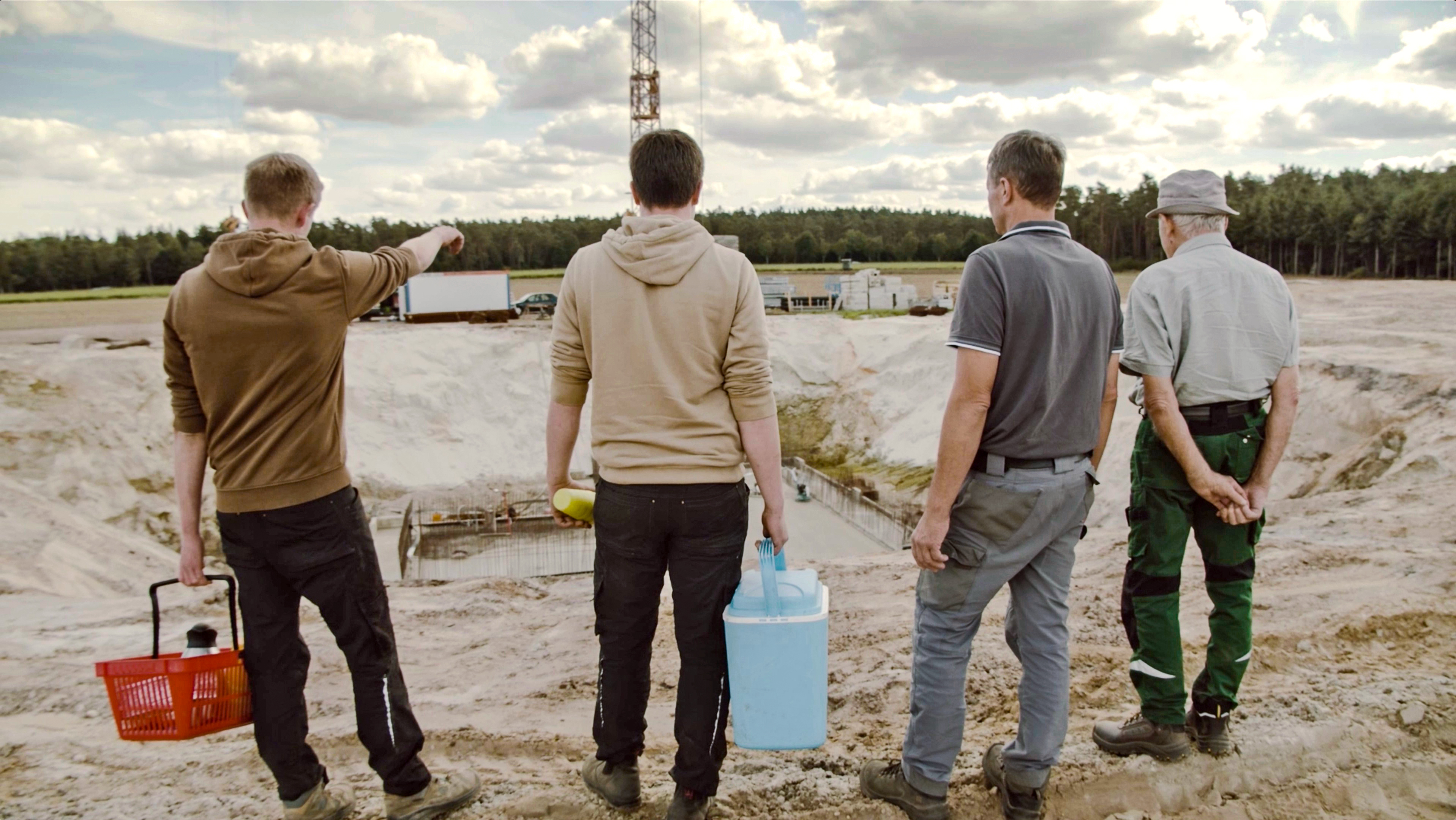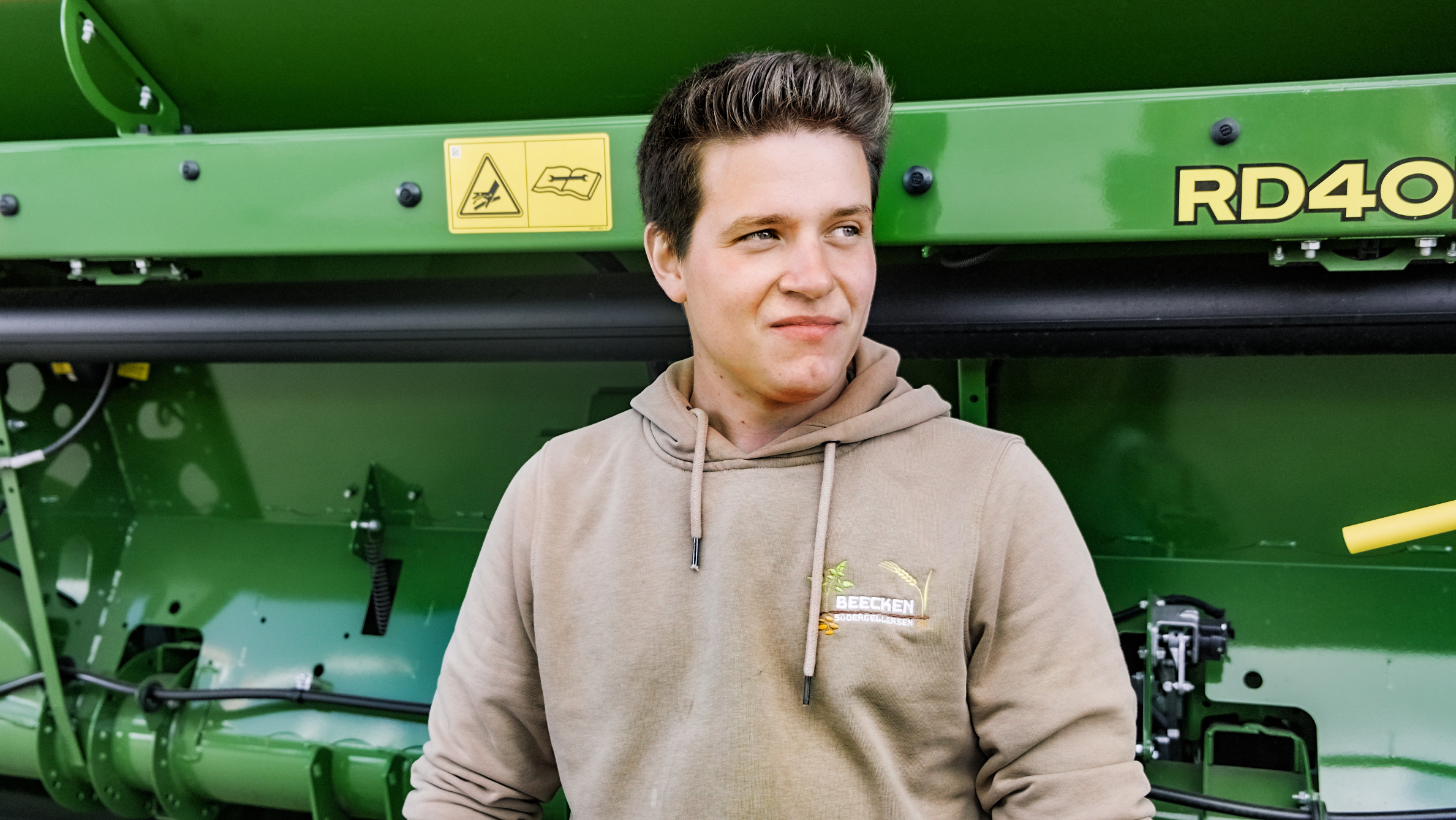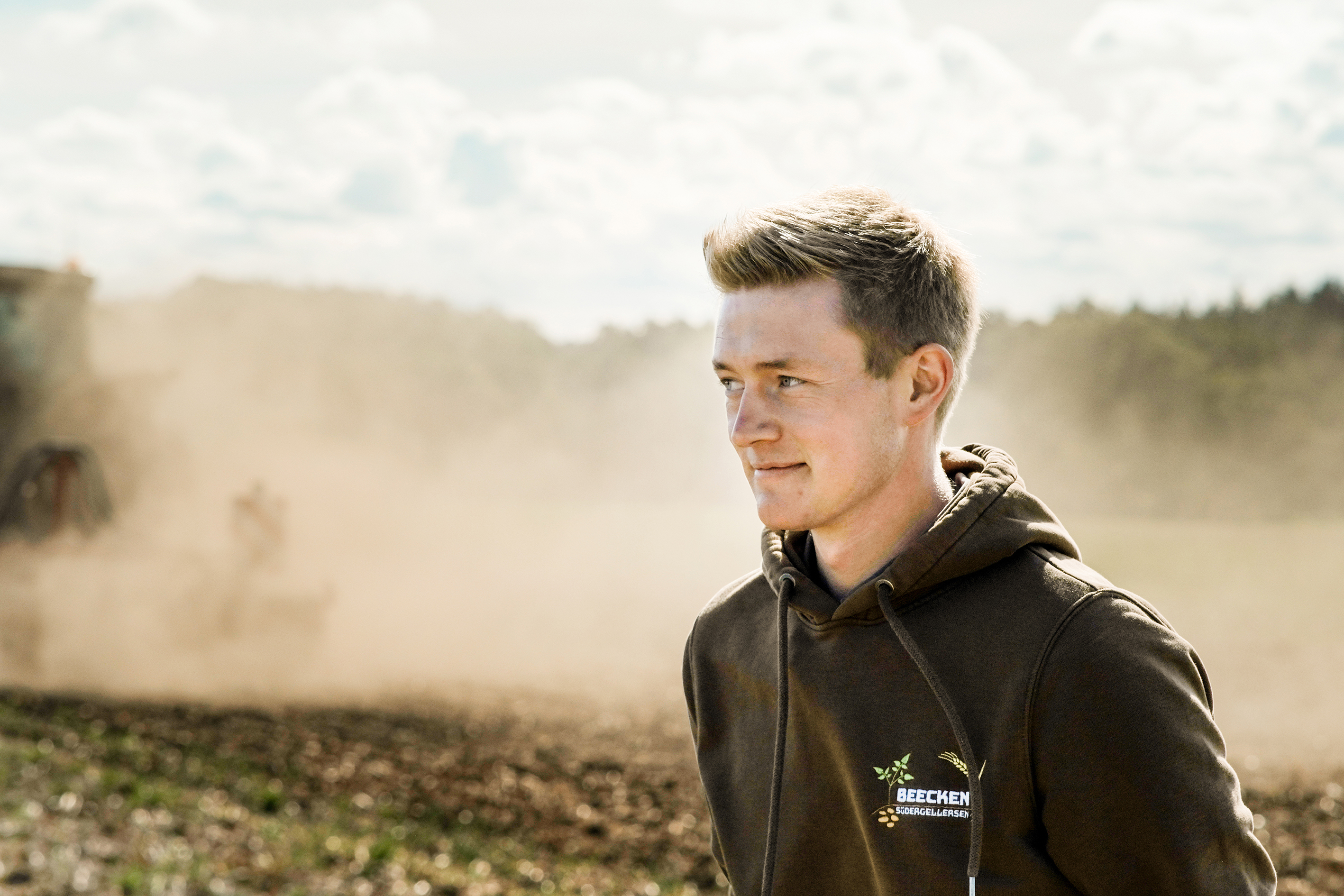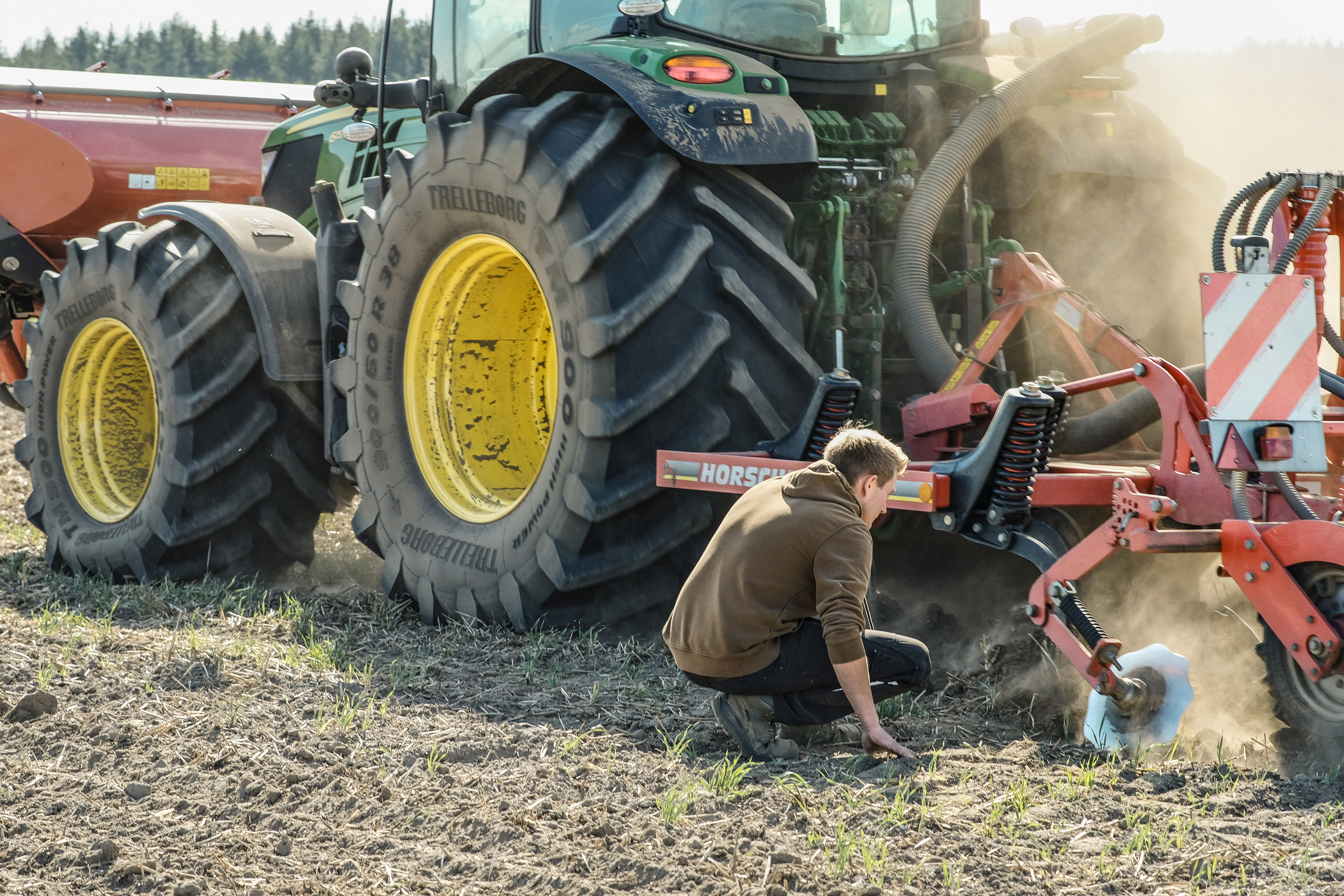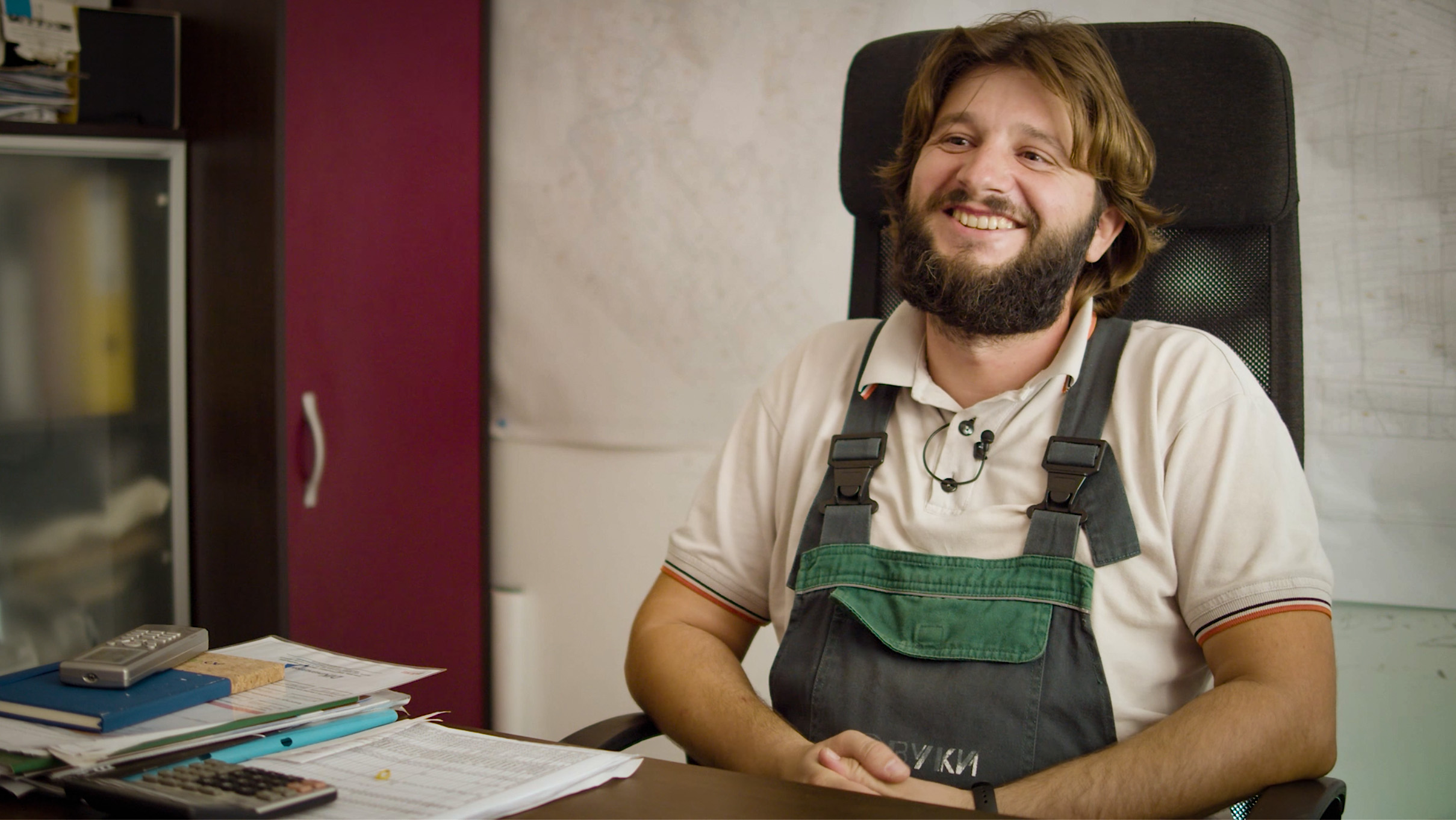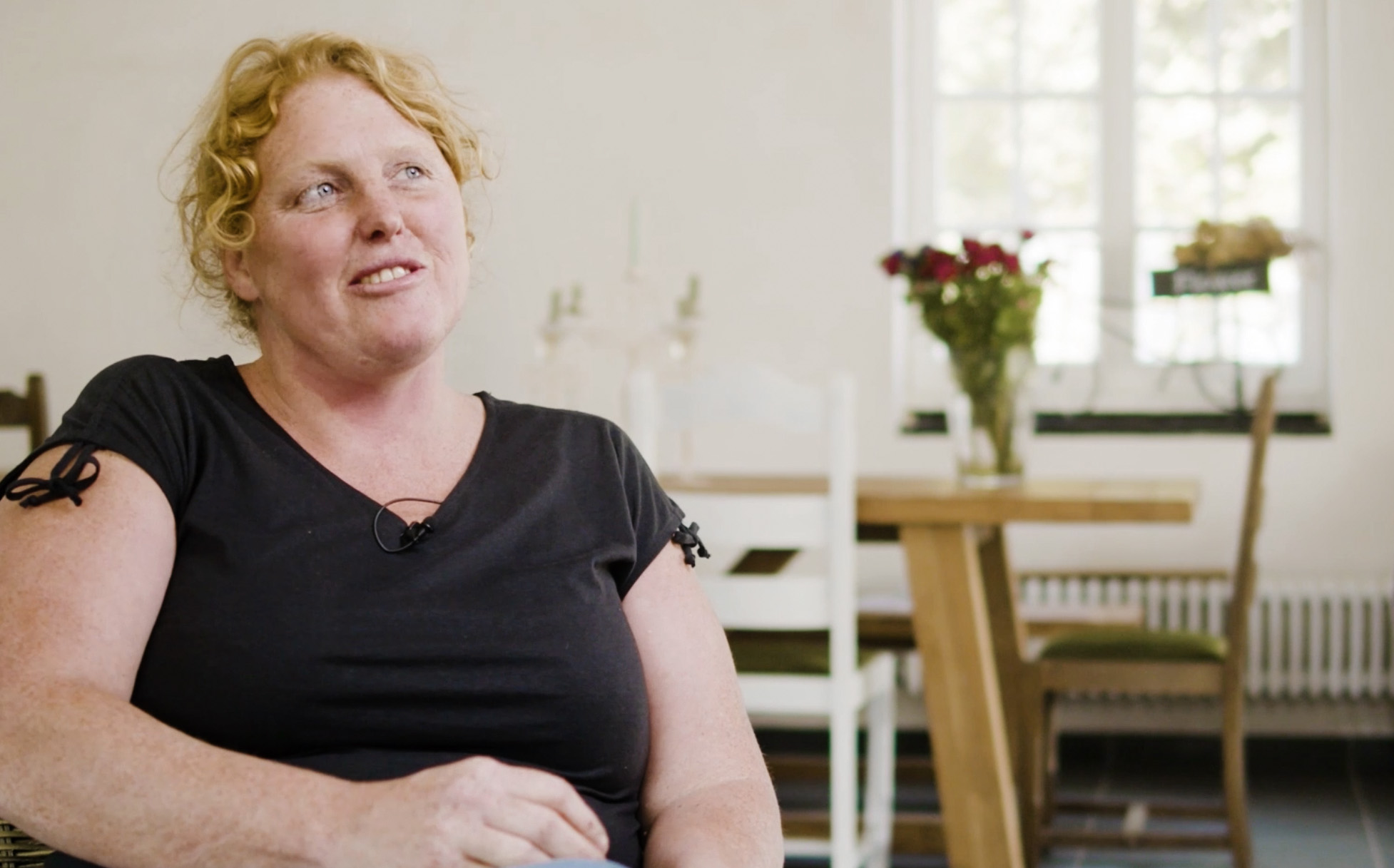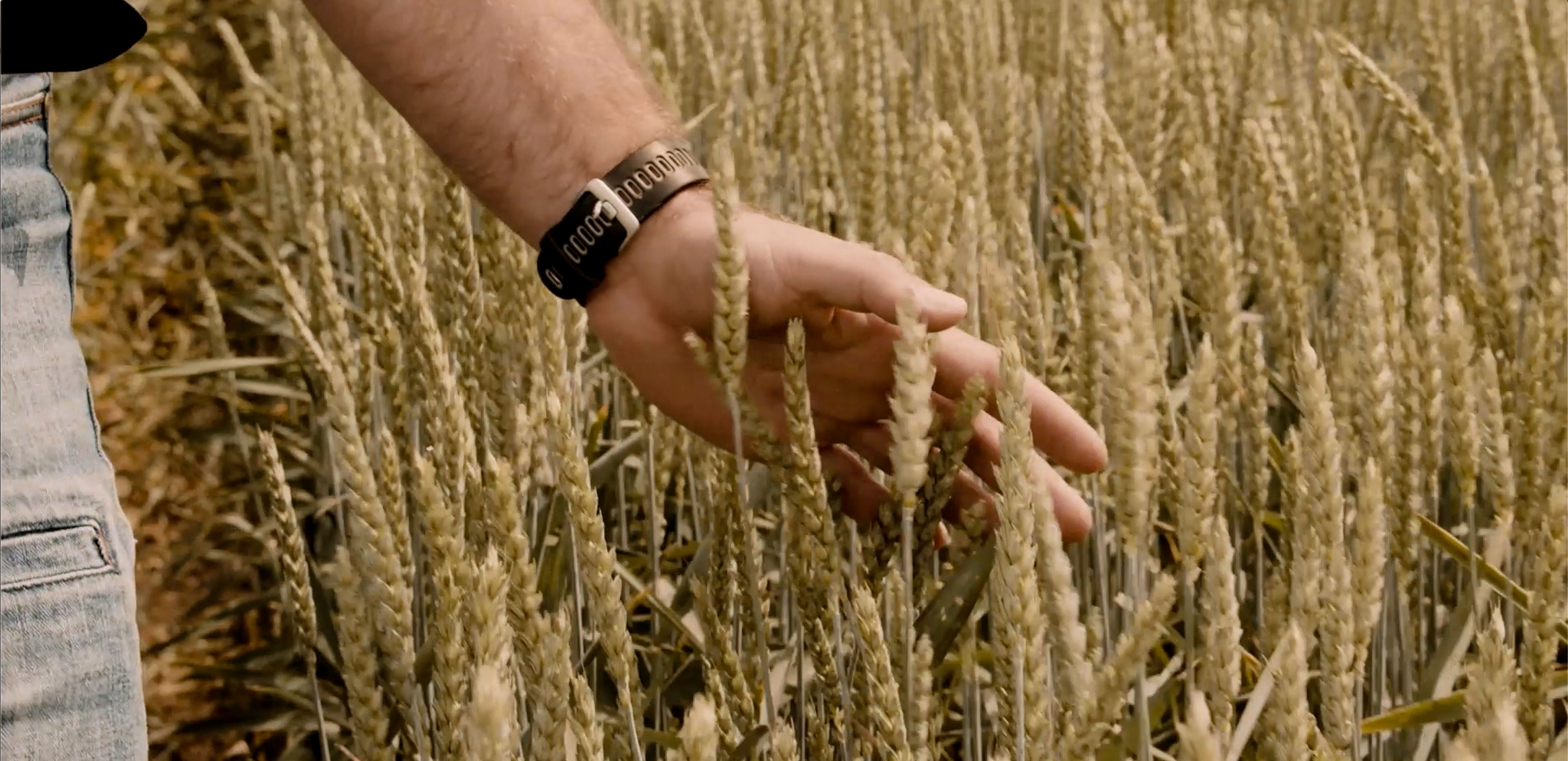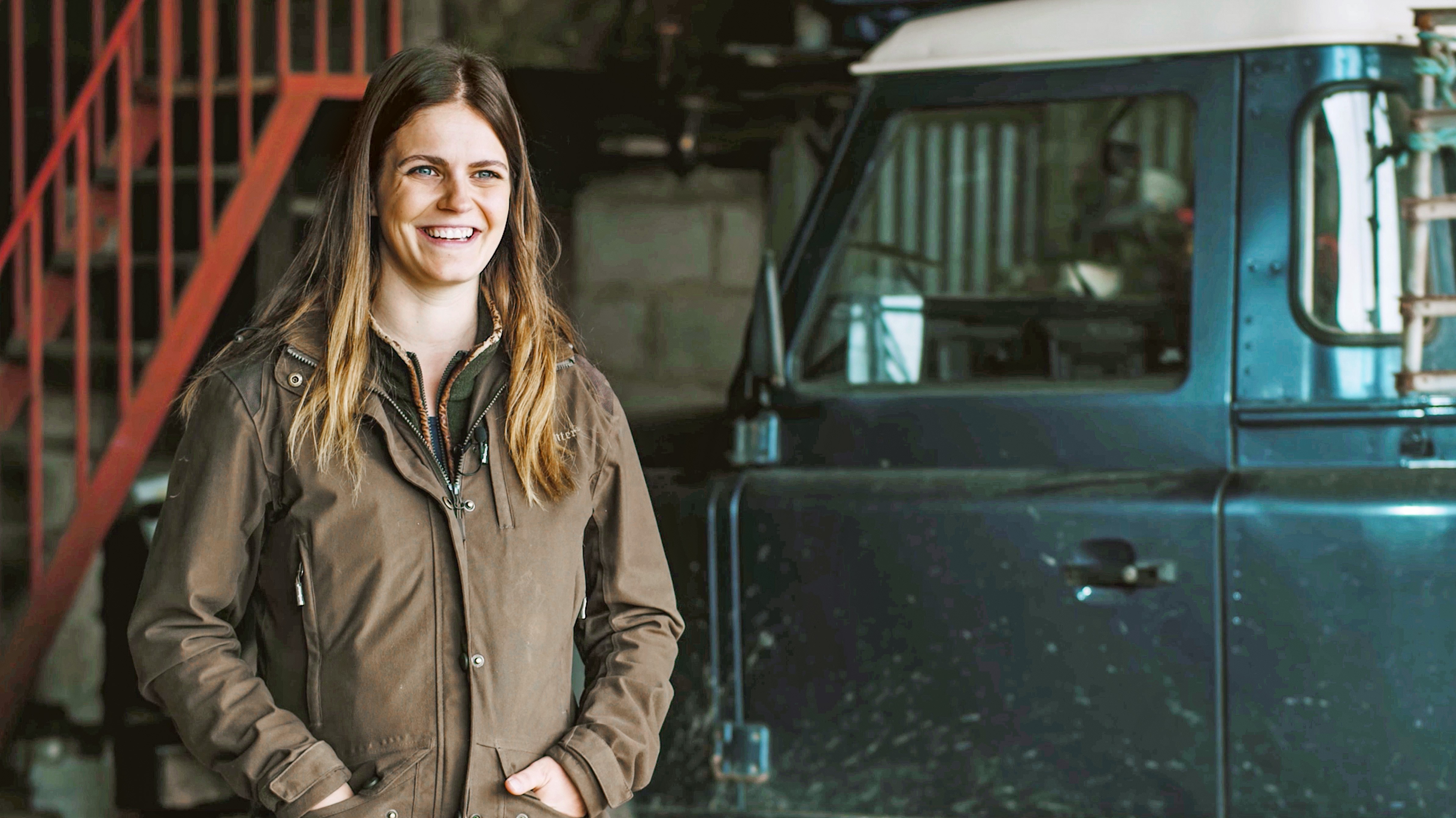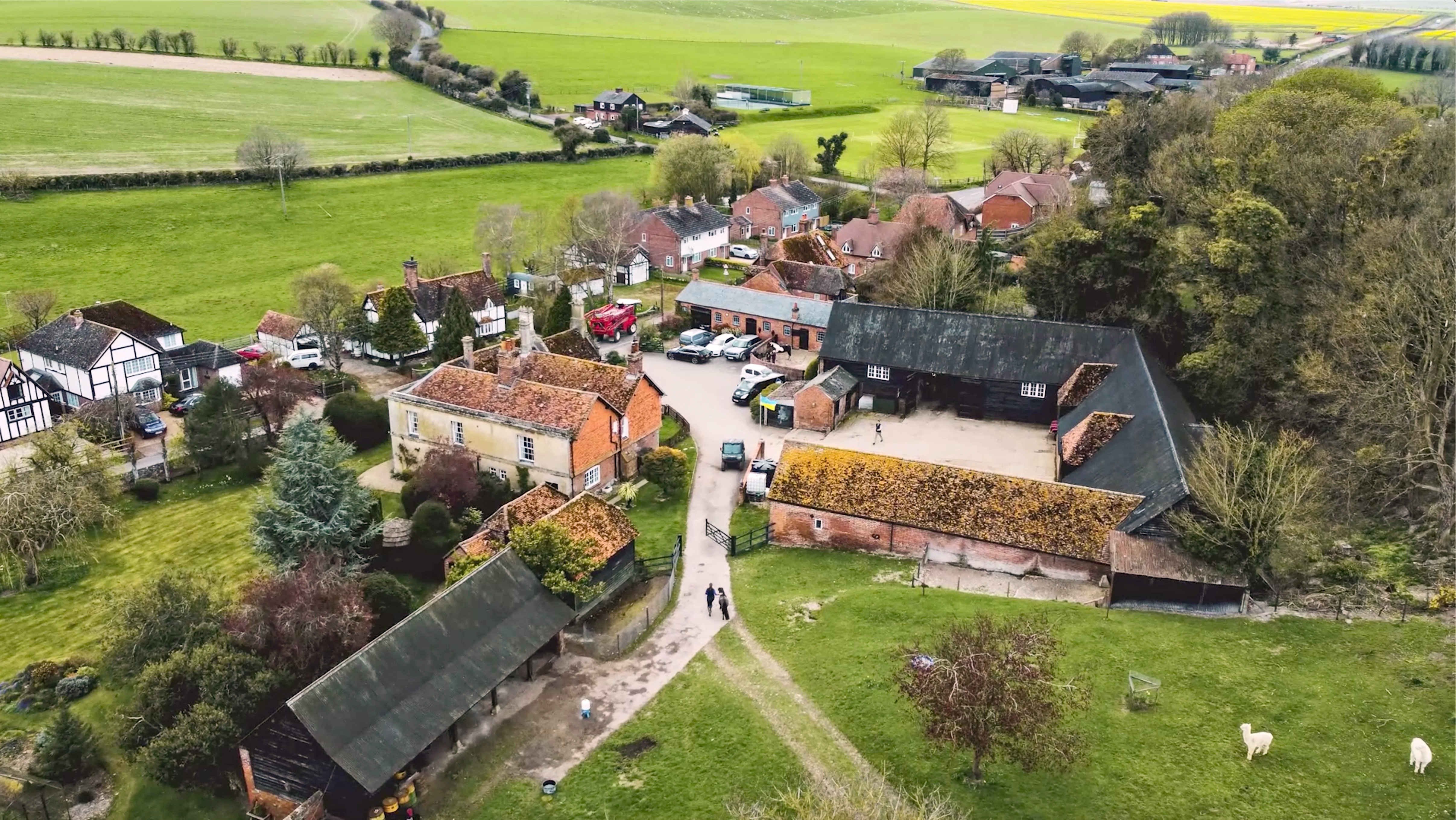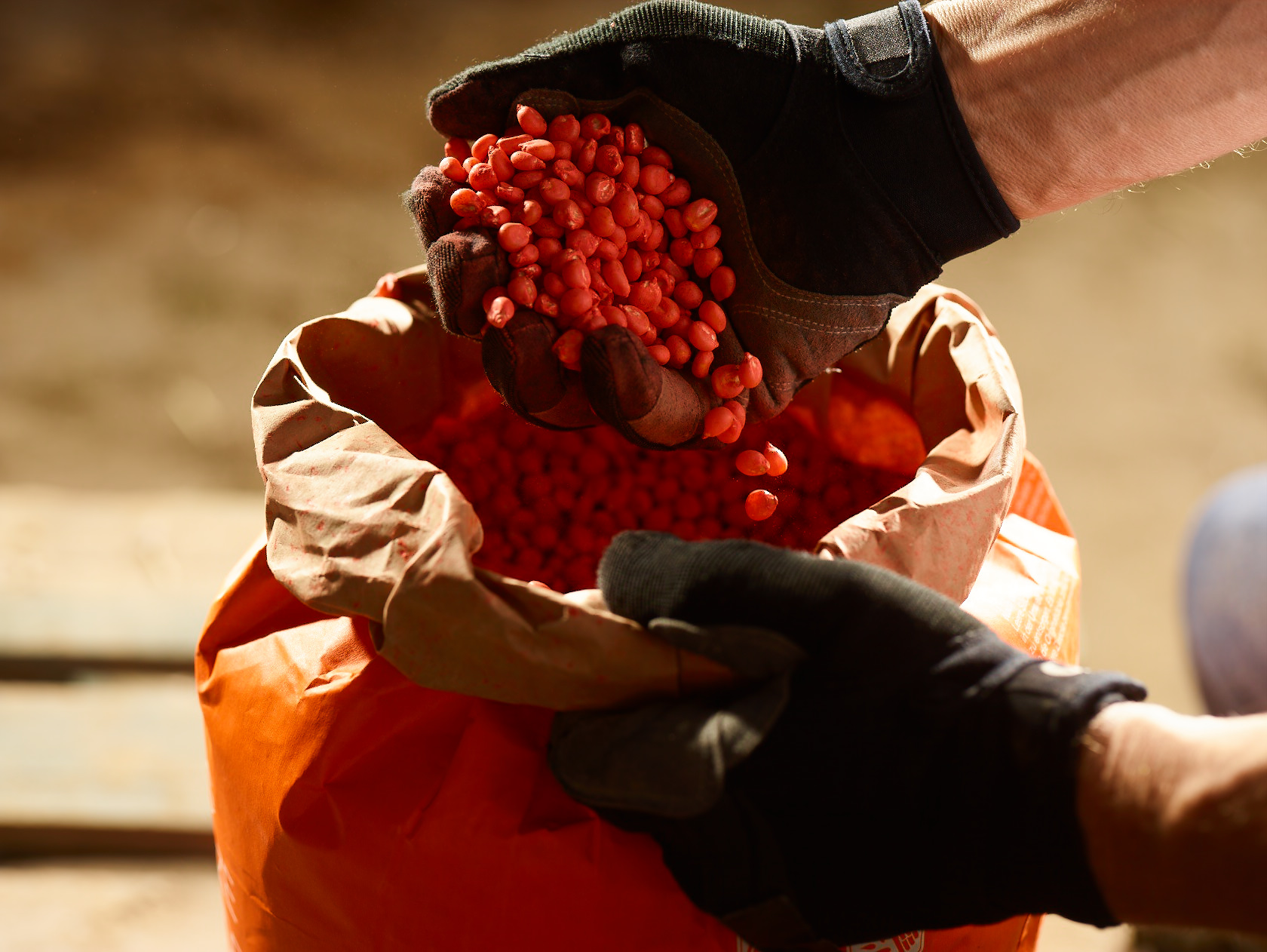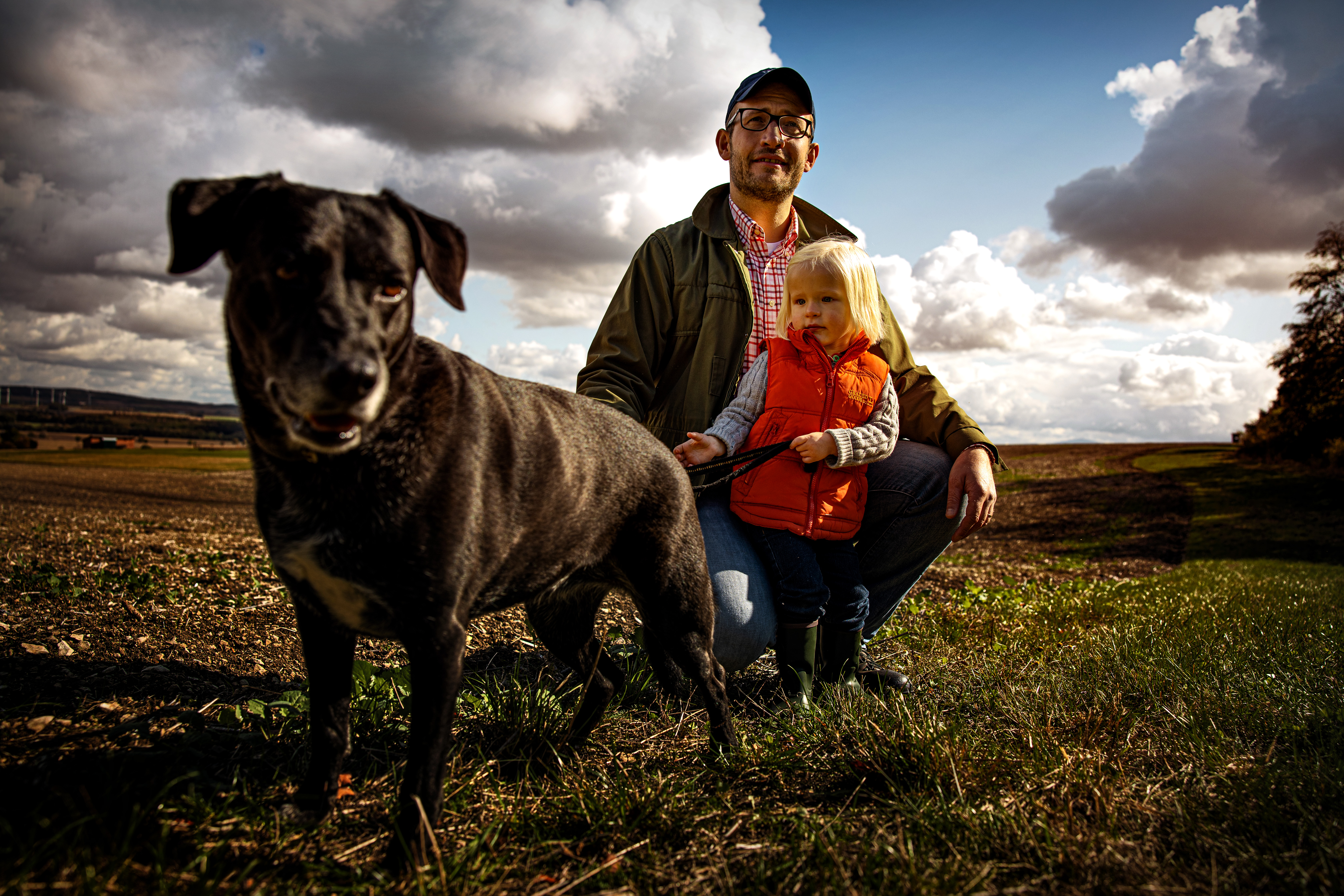Farming Insiders: the Beeckens
About Arne, Henning and Carsten
Brothers Arne (24) and Henning (26) Beecken took over the family farm in the Lüneburg Heath from their father Carsten a few years ago – since then, each has owned a 50-percent share of the business. They have also divided the areas of work among themselves: While Arne essentially takes care of the indoor management with the farmyard, workshop and pigsty, Henning’s responsibilities lie in the outdoor management of the arable farm. When the two brothers joined the farm, they convinced their parents and grandpa Helmut to venture in new directions.
Farm facts
Family farm in the eighth generation with five employees
Location: Südergellersen, County of Lüneburg, Lower Saxony
Crops cultivated: The main focus is on the cultivation of cereals and potatoes, with a total of 400 hectares of land under cultivation.
Special features: For generations, the farm has specialized in seed processing and multiplication.
The feeling of wanting to continue the work on the farm has grown day by day since childhood.
Question time
Arne and Henning, did the idea of taking over the family business take root naturally when you were younger?
Arne: Actually it wasn’t quite that clear to me in the beginning. I had also considered training as an agricultural machine fitter, but our trusted dealer suggested that I take up an agricultural apprenticeship, saying that I would be able to put it to good use in my life. So one thing led to another and then I took over the farm together with my brother.
Henning: We were involved in the goings-on here everyday as small children, so my interest in the farm was there from the ground up. Later on, the feeling of wanting to continue the work on the farm has grown day by day.
You have taken over a well-functioning farm. Are there things you would like to do differently or do you aim to continue in a similar way?
Arne: Because we’ve been helping out on the farm for many years, we’ve already had plenty of opportunities to shape things, to try out the work involved and to develop personally. There is therefore no reason to change anything simply because we are now in charge of the farm. I think that for us, employee motivation plays a major role, because next to the land, the employees are the most important thing for a farm. We as a family can accomplish a lot, but without our employees things simply won’t get done. That’s why the topic of team motivation, I believe, is an important point.
Henning: Exactly, and that’s why I believe that our generation is trying to display a somewhat different management style. These days, you have to deal with employees and trading partners a little differently than in the past. We are a bit more relaxed in how we handle things, but we still know what we want. This way, we bring people along with us.
What external challenges do you currently face as farmers?
Arne: The biggest challenges are the political situation and the general public’s view of agriculture. There has been a change in people’s minds as a result of the Ukraine war: They are now realizing the value of our work and our food.
Henning: Right now, there are a lot of crises in different regions of the world. Agriculture, including us with our farm, offers many solutions and contributes a lot to stability. To emphasize this importance, we need to get the population on our side even more.
It’s not at that point yet, but if you ever have children: How important would it be to you for your offspring to join the farm?
Arne: That depends entirely on the children. If they are keen themselves, appreciate the varied work on a farm and want to experience something new every day, then they should be happy to do it. I would recommend it to them.
Henning: I think I would recommend that my children continue in the family firm. It’s a job where you’re plenty tied up in terms of work, but it also comes with a lot of advantages, such as flexibility and versatility.
How much do your father and grandfather still help out with day-to-day work?
Arne: Well, our father has withdrawn a little more than our grandfather. During the season, however, he helps us wherever he can. Even our grandfather is still here every morning at half past seven for the staff meeting, providing support.
Henning: Grandpa is 87 years old now, and it’s fun to have him around every day. Not only did he lay the foundation for our business, for which he deserves respect, but he also livens up our day-to-day work with his sense of humor. Of course, he used to be able to help out more physically, but now he does more transport work, which also includes picking up our friends from an event during the night. We are happy and thankful that we are supported by our family and also by the employees in a way that means we can also enjoy our freedom sometimes. It’s not uncommon for Dad to do the accounts for me in the evening, for example, and feed the pigs for Arne in the morning.
Question time
In what way do you aim to further develop the farm technically and structurally?
Arne: We have now reached a point where the old hall is slowly becoming too small and the technology too old. That’s why Henning and I have made a plan to invest in that again for the future of the farm. A new processing plant is being built outside, and it also motivates the employees when they can operate new technology instead of the old equipment.
Henning: We were also able to convince Dad and Grandpa that a new processing plant would allow us to make the farm more versatile.
With its different conveyor options, the plant offers us the chance to process not only cereals, but also legumes. These are important issues that we must not lose sight of in the future.
With the expansion of the farm, you are making your contribution to making the business even more stable and sustainable for the future. What does this task mean to you?
Henning: I think this new building simply means that we will be able to set up our operation even more securely and broadly in the future. This plant offers us more possibilities, more tasks and even more potential.
Arne: There are moments when you feel proud that you have taken over such a company and can now continue to run it. I do find it moving when I’m standing at the works site creating things that hopefully will still be there in the next 50 or 100 years. I view the task I have taken on as a baton that I will eventually pass on to another generation.
Question time II
... And how does their father Carsten view the change of generation?
Your two children have taken on your farm together – what advantages do you see in transferring responsibility to more than one pair of shoulders?
Yes, it’s rather unusual to pass on the farm to two sons, but we did it anyway because we saw it as an opportunity: Now both of them can make important decisions together, but also one of them can leave if they want to be there for the family. Or if one of them is sick, then things can keep going.
What did you pass on to your sons when you handed over the baton?
My wife and I tried to consolidate and expand the business. For the next generation, my main concern is to continue to pay attention to the human aspect, in the sense of good employee management. That means maintaining enthusiasm, forming a team and also bringing it forward. This creates new opportunities. Values and norms play a strong role here in our family anyway. For my wife, family, feeling more connected to each other and to the business, is very important.
Question time
Is it – or was it – difficult to step back from the day-to-day work?
Our farm goes back generations and even my father is still involved, even though I myself have since handed over to our sons. I'm also involved, but from a distance. The boys likewise attach importance to this; they have their own philosophies and want to contribute their ideas here. For me, that means that I’m there to guide them, I always have my phone with me, even though I’ve changed my number so that I’m no longer the main contact for those outside.
How does it feel to have passed on the business to good pairs of hands within the family?
When I look towards the future, I am proud and grateful that the eighth generation is now developing the business in this way and changing it a bit for their own purposes, but continuing to run it as a whole. That is the greatest gift for my wife and me, and I can now devote myself to other things that are close to my heart.
Paving the way. For a fruitful tomorrow.
Farm life is often characterized by family cohesion and traditions that have grown over decades. Around the world, many generations live and work on farms under one roof, and at some point the question of farm succession comes up. Our new Farmer Portraits focus on this generational change that many farmers are facing. Young and old alike - we visited farmers on their farms to have them tell us about their stories, their challenges and their hopes.
Your contact
